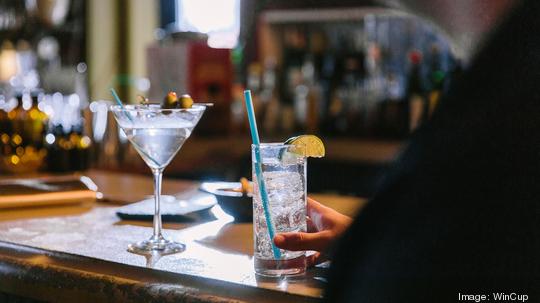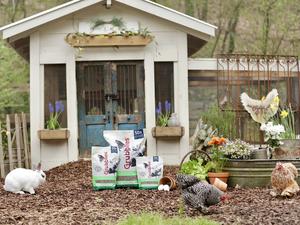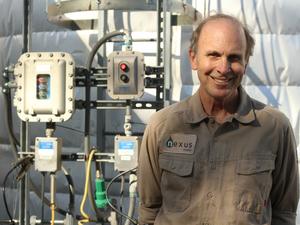
A decade into manufacturing food service products, Stone Mountain company New WinCup Holdings Inc. wanted to go a different route.
The single-use straws, cups and lids were contributing to global waste, so the company started developing a straw that looks and acts like plastic when you use it but composts in most environments.
After 18 months of research, WinCup created the Phade straw, made with polyhydroxyalkanoate, or PHA, which derived from fermenting canola oil. Since 2018, the manufacturer has produced more than 250 million of these straws and has partnerships with Dunkin’ and Walmart to carry them.
Soon, WinCup CEO Brad Laporte says there won’t be a need for petroleum-based plastic straws anymore.
"We are going to continue to move in this direction,” said Laporte, who joined the company in late 2016 as it shifted toward an eco-friendlier model. “Bans are not the answer. We need to come up with new, innovative products to take care of our environment.”
The straws break down in months in marine, backyard and industrial compost settings. The straw was the only disposable product to win the FoodService Innovation Award for Sustainability Solutions from the National Restaurant Association and SmartBrief.
The company has eight manufacturing locations and Laporte says it has the infrastructure to scale production of the straws. Right now, they’re being produced in a Jacksonville, Fla., facility, which has the capacity to make 20 billion straws, according to a company spokesperson.
Dunkin’ is piloting the straws in several hundred stores after first testing paper straws. Walmart was WinCup's first customer and has sold the Phade straws under its Great Value brand since January 2020.
WinCup also produces a biodegradable foam cup, its first environmentally friendly solution to disposable food service products. The cup breaks down about 94% over four years in "wetter and biologically active landfill” conditions, according to its website.
“That was our first entrance into the environmentally friendly product base,” Laporte said. “From there, we went to the next step with Phade — something that didn’t have fossil fuels and was completely sustainable.”
In September 2020, Los Angeles-based Atar Capital acquired WinCup, in part for these production innovations.
Laporte said WinCup will continue to research and develop other sustainable food service products, such as lids or to-go containers.
The market for single-use products isn’t going away, Laporte said, which became especially evident as restaurants adjusted to the Covid-19 pandemic. He sees produces biodegradable alternatives as a solution to waste and the industry’s dependence on plastic.







